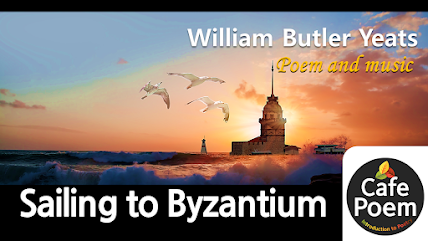Silver
Slowly, silently, now the moon
Walks the night in her silver shoon;
This way, and that, she peers, and sees
Silver fruit upon silver trees;
One by one the casements catch
Her beams beneath the silvery thatch;
Couched in his kennel, like a log,
With paws of silver sleeps the dog;
From their shadowy cote the white breasts peep
Of doves in a silver-feathered sleep;
A harvest mouse goes scampering by,
With silver claws and a silver eye;
And moveless fish in the water gleam,
By silver reeds in a silver stream.
Enjoy the poem with beautiful music.
poem video👇
Who wrote the poem "Silver"?
Walter de la Mare (April 25, 1873 – June 22, 1956)
Walter de la Mare was a British poet, short
story writer and novelist. His works range diversely from children’s books to
horror stories, often focusing around the themes of childhood, imagination, and
the supernatural. He preferred to be called as “Jack” by family and friends
instead of his name “Walter.” He was happily married to Elfrida Ingpen, who was
ten years older than he, and the couple had four children. His wife died in
1943 of Parkinson’s disease. He died of a heart disease in 1956, and in his
final year, he was cared for by a nurse whom he loved but never had a physical
relationship with.
"Silver" explanation
In the poem, the speaker describes a calm,
peaceful, and beautiful night scene impacted by the silver moonlight.








